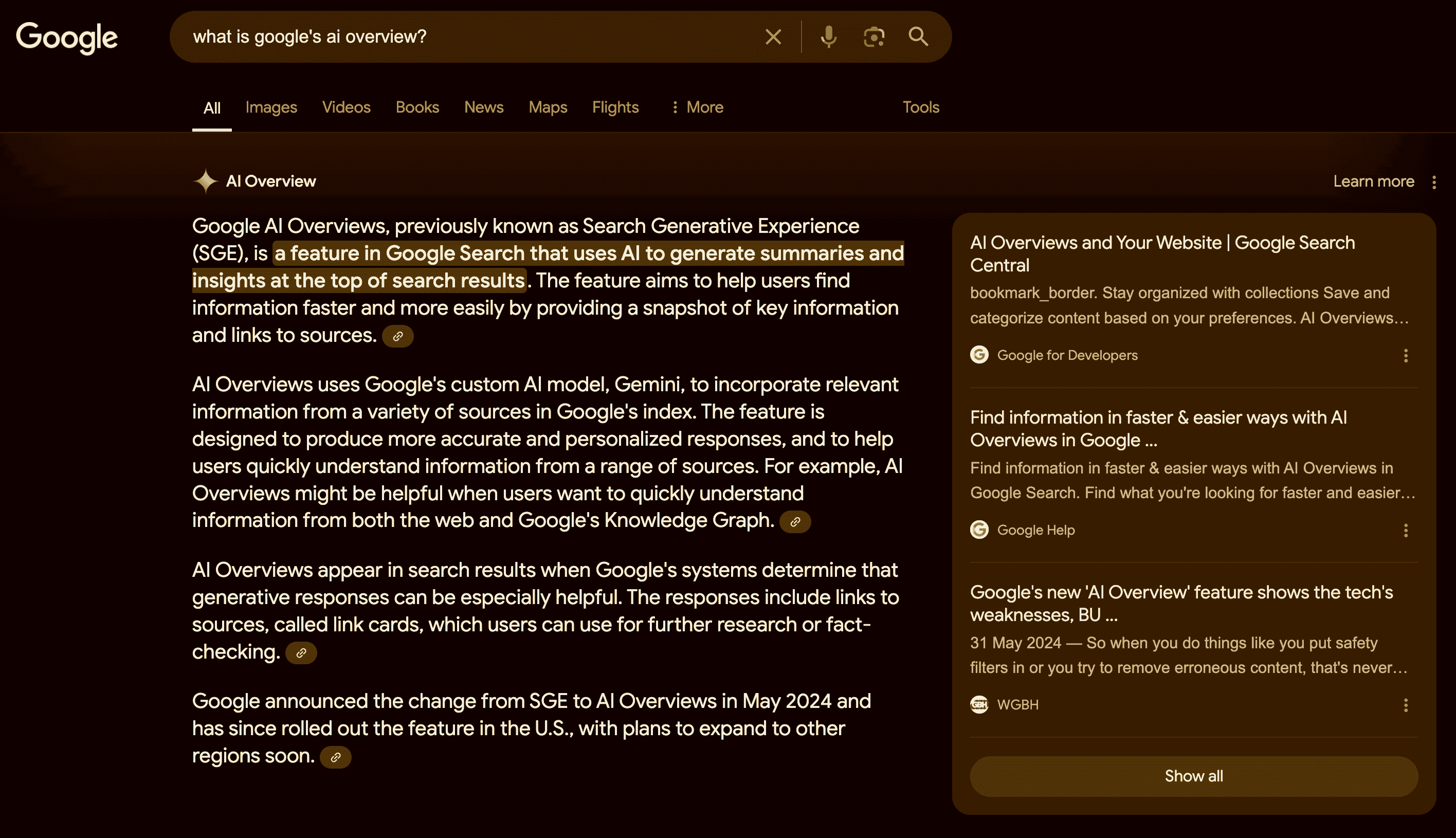Leveraging AI and ML Based Tools for Content Optimization
Last updated on Tuesday, October 10, 2023
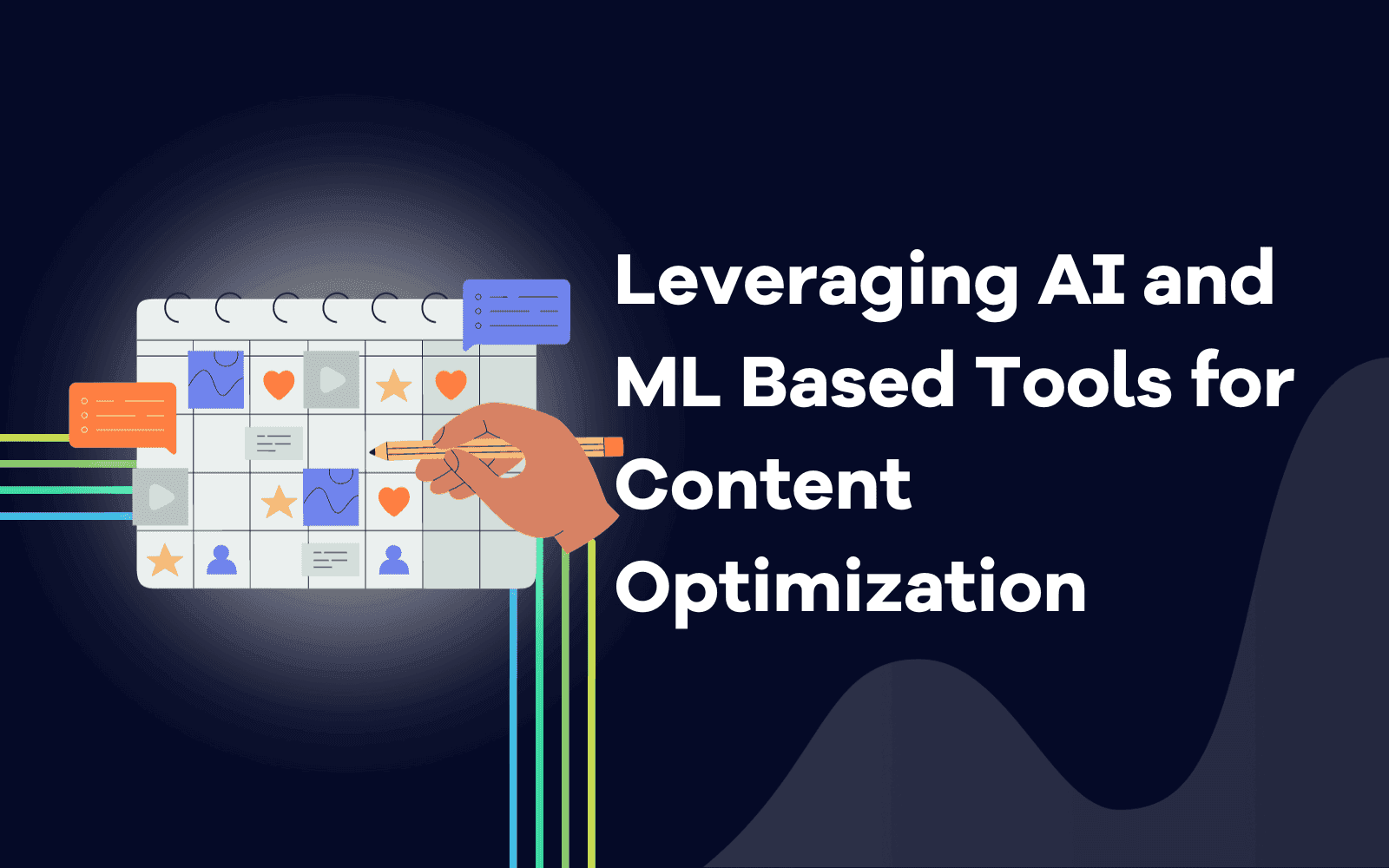
AI has taken a firm foothold in pretty much every other field nowadays. It’s used in research, content creation, and even in content optimization.
If you’re trying to improve your content optimization routines to enhance the quality of your write-ups, read this post till the end. We will discuss some of the main ways in which you can leverage AI and ML-based tools for this purpose.
But before we get to that, let’s discuss what AI and ML actually are so that we’re clear on the basics before we begin.
What is AI (Artificial Intelligence)?

There are a lot of definitions that different sources for artificial intelligence have proffered. If we encapsulate the whole idea of it in a single sentence, it comes out like this:
“The branch of computer science that deals with equipping computer systems to process and perform tasks that usually require humanlike intelligence.”
We can also call AI the “reproduction and simulation of human intelligence by a computerized program or device.”
Of course, in our context, the definition of AI is a lot more specific. When we talk about AI in online tools, we refer to such tools that are equipped with smart algorithms that allow them to work and provide results in a human-like manner.
The applications and use cases of AI are very diverse. You can find AI in simple things like the predictive typing option in your smartphone and in highly-advanced assistant apps like Siri and Google Assistant.
What is ML (Machine Learning)?
Like AI, there are a lot of ways in which machine learning has been defined by online sources. To put it in our own words, here is how ML can be explained in a single sentence:
“The branch of artificial intelligence that deals with equipping computer systems and software to gradually become more adept and accurate at providing their respective results and outputs.”
Software and systems that are equipped with ML evaluate and “learn” from the inputs they are provided (as well as other parameters) in order to improve the quality of their outputs.
A very common example of ML can be seen in the Windows PC’s update model. As you may have observed yourself, Windows PCs automatically detect the active hours of the users, and they offer to install the update outside those particular hours. This gimmick involves looking at the usage pattern and then learning from it to provide a solution…which is more or less ML in a nutshell.
How Can You Leverage AI and ML-Based Tools for Content Optimization?
Now that we’re done with the basics, let’s move on to look at how you can leverage AI and ML-based tools for content optimization.
AI Grammar Checkers for Grammatical Perfection
One of the main facets of content optimization that you have to take care of right off the bat…is grammar and spelling correction.
Nothing spoils content quality more than consistent (or even sporadic) grammar and spelling errors. These types of errors betray the amateurism of the writer. The worst thing about these errors is that they are hard to detect by the writers themselves but are quick to be spotted by the readers.
You can use AI grammar checkers to find and eliminate these errors and imperfections from your content. AI grammar checkers are able to understand the grammatical context of the sentences in the input text, due to which they can accurately point out errors and offer suggestions.
A good example of an AI grammar checker nowadays is Grammarly. Other than the occasional misfire, Grammarly works pretty well in analyzing the given text and pointing out the errors in it.
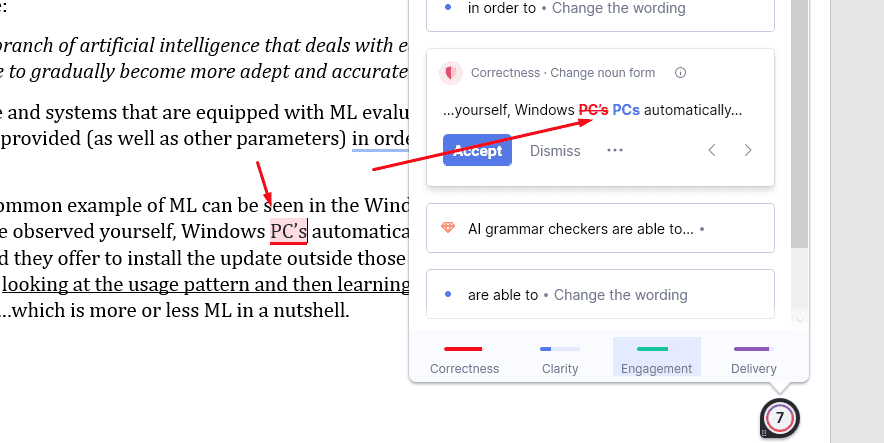
AI Paraphrasers for Better Clarity and Engagement
This is yet another way in which you can leverage NLP and AI-based tools for content optimization.
Clarity and engagement are necessary elements of good content. If you want your content to be effective (for whichever purpose it is written), you need to make sure that it catches the attention of the readers and engages them till the end.
Paraphrasing techniques can be a good way to make bland content catchier. While it is not a hard and fast rule that every boring piece of content will be transformed into something more interesting, AI paraphrasers can usually improve the quality of the text they are given.
Here is an example: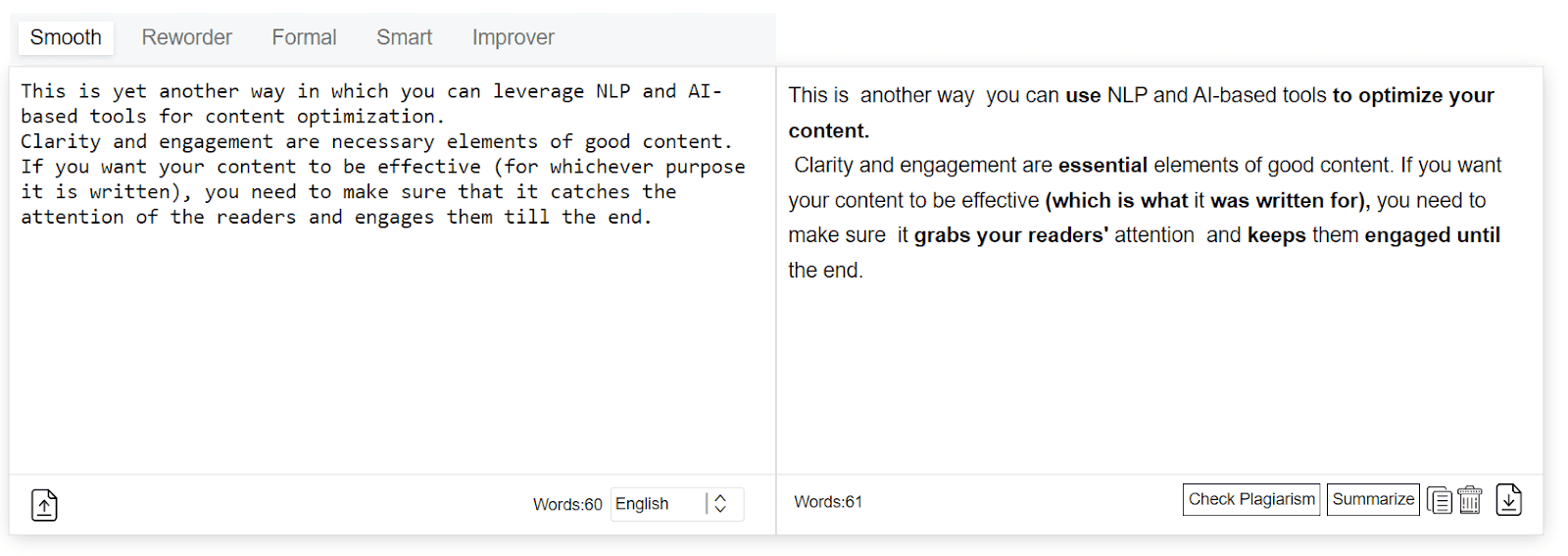
You can see in the image above that the entered content is considerably longer and clunkier than the output.
Just as we utilized an AI paraphraser for rephrasing a single sentence, you can use them more extensively and employ them for long-form content.
However, it has to be remembered that while using paraphrasers for improving your content is fine and all, using them for mooching off someone else’s content is not at all ethical. You should use these tools for assistance and not for unethically churning out content without putting in an effort of your own.
AI Summarizers for Conciseness and Brevity
When it comes to content optimization, excess text and fluff have to be removed. No one likes to read TLDR stuff, especially in commercial settings, i.e., things like product descriptions and cold emails, etc.
By leveraging AI tools, you can take care of this without making a lot of manual effort yourself. If you find that a particular piece of text in your content is too long, you can use an AI summarizer to shorten it.
Using an AI summarizer (as compared to a non-AI summarizer) is better since the former is able to understand the meaning and context of the input. By understanding the meaning and context, they are able to generate coherent summaries that efficiently convey the main concept of the input.
Like the above points, let’s do a demonstration of using AI summarizers for shortening content.
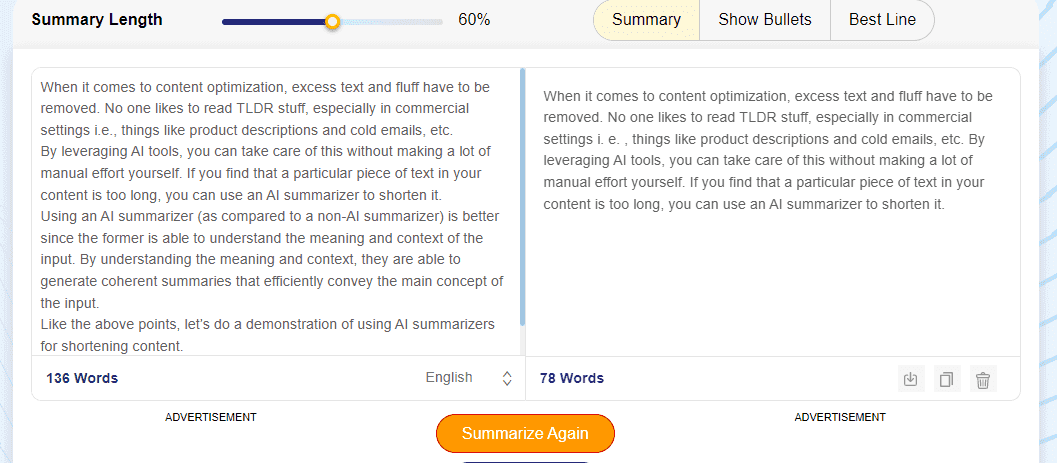
Branching out a little, there is also another purpose for which you can use AI summarizers. Although this does not technically count as content optimization, you can use summarizers for creating short-form text such as abstracts and excerpts. For example, if you want to publish a blog post and you’re required to create a smaller introduction for it, you can use summarizer tools instead of making an effort yourself.
AI Plagiarism Checkers for Finding Plagiarism
Last but not least, another important content optimization factor that you should take care of is plagiarism. And this is also something in which you can take the help of AI tools.
The difference between an AI plagiarism checker and a normal plagiarism checker is that the former is able to detect lightly paraphrased content. In other words, if a person lightly paraphrases a piece of content in order to utilize it unethically, an AI paraphraser will be able to detect it.
Here is an example of how this looks like in action:
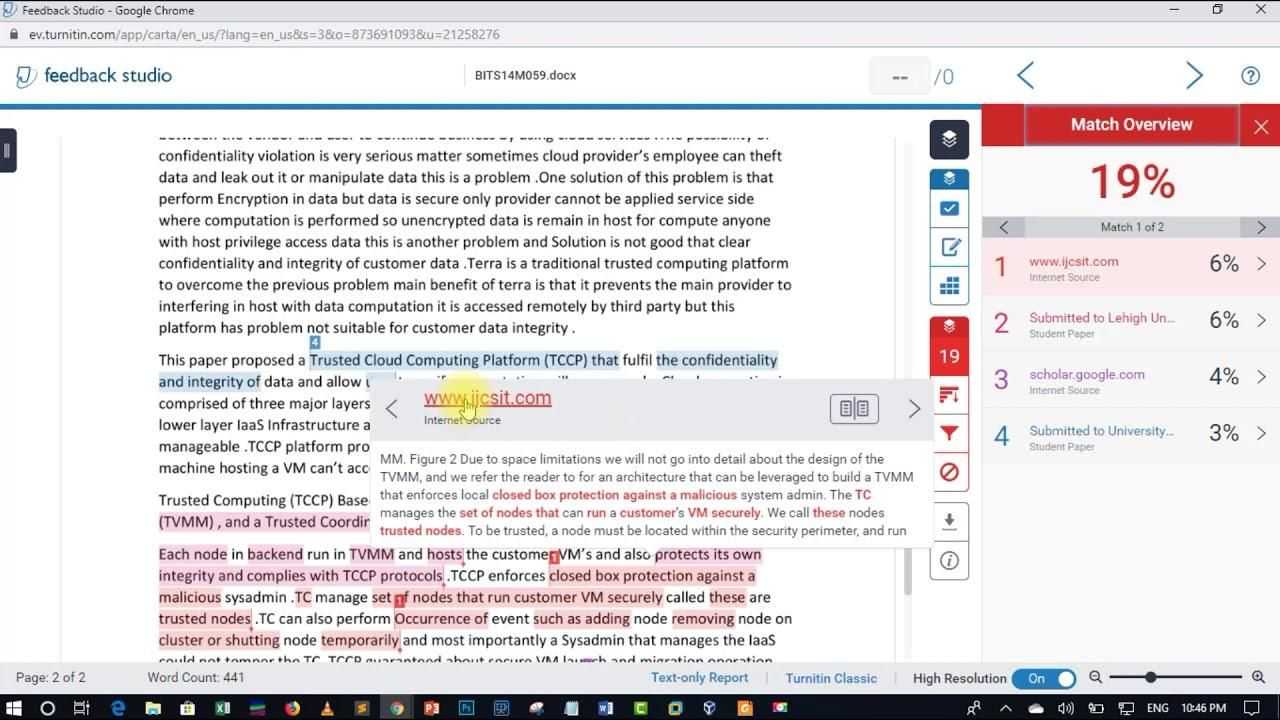
Source: Turnitin Plagiarism Report
Conclusion
By using AI to optimize your content, there are a lot of imperfections that you can get rid of. For one, you can ensure that your content is free of grammatical errors. You can also fix readability issues as well as make your content concise.
However, while the benefits of using such tools are multifarious, you have to be careful about the actual tools that you pick. Getting the full benefits of AI tools is reliant on choosing the right ones.

Article by:
Annie Moore
Writer
Annie Moore is a writer who has written blogs about business, SEO, education, and technology. She is a prepared digital marketer with over 5 years of marketing experience. She has led the way in digital marketing Strategies with many organizations and high-quality brands to generate more revenue through web-based promotional systems, and implementation has been compiled.
